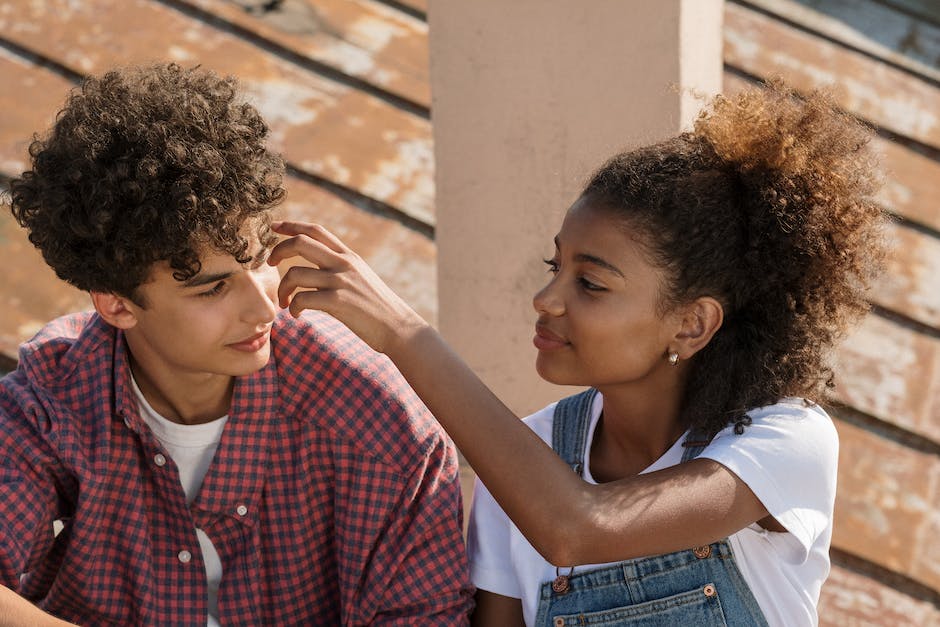The Power of Curiosity: How Asking Questions Can Deepen Connections
The Benefits of Curiosity in Building Relationships
Curiosity, the innate desire to explore and learn, is a powerful tool that can significantly enhance our ability to build strong and meaningful relationships. By approaching others with a sense of wonder and interest, we open the door to greater understanding and connection. When we are curious about someone’s experiences, opinions, and perspectives, we demonstrate a genuine desire to know them at a deeper level. This not only fosters a sense of trust but also encourages open and honest communication, which forms the foundation of any successful relationship.
One of the key benefits of curiosity in building relationships is its ability to break down barriers and overcome differences. When we approach others with curiosity, we are more inclined to see beyond surface-level judgments and stereotypes. By actively seeking to understand their backgrounds, beliefs, and values, we acknowledge and respect the diverse nature of the world we live in. This willingness to embrace diversity paves the way for stronger connections and fosters an environment of inclusivity and acceptance. Whether it’s engaging in conversations about different cultures or exploring new hobbies together, curiosity allows us to bridge the gaps between us and celebrate our shared humanity.
The Role of Curiosity in Fostering Understanding and Empathy
Curiosity plays a vital role in fostering understanding and empathy in our relationships. When we approach others with a genuine sense of curiosity, we open ourselves up to learning more about their experiences, perspectives, and emotions. This curiosity-driven mindset allows us to suspend judgment and truly listen to what the other person has to say, enabling a deeper level of understanding.
By asking questions and seeking to understand, we demonstrate a sincere interest in the other person’s thoughts and feelings. This simple act of curiosity shows that we value their opinions and are willing to put in the effort to comprehend their point of view.

How Curiosity Can Enhance Communication Skills
Curiosity plays a vital role in enhancing communication skills. When we are genuinely curious about others, it allows us to actively listen and engage in meaningful conversations. By asking questions and seeking to understand, we show interest and respect for the other person’s perspective. This fosters an open and inviting environment, where communication can flow more easily.
Additionally, curiosity helps us to break down barriers and overcome differences. When we approach conversations with an open mind and a desire to learn, we are more likely to find common ground and shared interests. Curiosity encourages us to explore different viewpoints and expand our understanding of the world. It allows us to appreciate and embrace diversity, rather than seeing it as a hindrance. Through curiosity, we can bridge gaps, forge connections, and ultimately create deeper and more meaningful relationships.
Unleashing the Potential of Curiosity to Discover Common Interests
Curiosity has an incredibly powerful potential when it comes to discovering common interests in building relationships. When we approach conversations with genuine curiosity, we open up opportunities to connect with others on a deeper level. By asking questions and actively listening to the responses, we can uncover shared passions, hobbies, or experiences that unite us.
In the realm of building relationships, curiosity serves as a bridge that allows us to cross over to the other person’s world. It shows that we value their thoughts and opinions, creating a space for them to share openly. By expressing curiosity and seeking to understand, we demonstrate our willingness to go beyond surface-level interactions and delve into what truly makes someone tick. In this process, not only do we uncover common interests, but we also gain insights into their perspectives, beliefs, and experiences. As a result, we form a stronger foundation for connection and rapport.
The Art of Active Listening: Curiosity as a Tool
Active listening is an art that requires curiosity as its key tool. When we approach a conversation with genuine interest and a desire to understand the other person, we create a space where deep connections can be formed. Curiosity allows us to go beyond surface-level small talk and delve into meaningful discussions.
By being curious, we are able to ask thoughtful questions and actively listen to the responses. This not only shows respect and care for the other person, but it also helps us gain a deeper understanding of their perspectives and experiences. When we are curious, we naturally become more engaged in the conversation, further enhancing our communication skills. So next time you find yourself in a conversation, remember to embrace curiosity as your tool for active listening – it may just lead to a more fulfilling and connected exchange.
Curiosity as a Catalyst for Meaningful Conversations
When it comes to having meaningful conversations, curiosity acts as a powerful catalyst. Curiosity encourages us to ask questions, seek understanding, and genuinely engage with others. It allows us to set aside assumptions and judgments, creating a space where meaningful and open dialogues can flourish.
By embracing curiosity, we demonstrate a genuine interest in the other person’s experiences, thoughts, and beliefs. It shows that we value their perspective and are willing to listen and learn from them.

Using Curiosity to Break Down Barriers and Overcome Differences
In a world that is becoming increasingly diverse, it is important to find ways to break down barriers and bridge the gap between different cultures, backgrounds, and beliefs. One powerful tool that can help in this endeavor is curiosity. By approaching others with genuine interest and an open mind, curiosity allows us to explore and understand alternative perspectives, ultimately leading to a deeper appreciation of our differences.
When we approach conversations with curiosity, we demonstrate a willingness to listen and learn, rather than to judge or impose our own beliefs. This opens up a space for meaningful dialogue, where we can ask questions, seek clarification, and actively engage with different viewpoints. Curiosity encourages us to go beyond surface-level assumptions and encourages us to uncover the underlying motivations and reasons behind people’s thoughts and actions. Through this process, we not only gain insights into others, but also gain a clearer understanding of our own biases and preconceptions. By embracing curiosity, we can overcome differences, foster understanding, and build stronger and more meaningful relationships.
Curiosity: A Key Component in Building Trust and Rapport
Curiosity plays a crucial role in building trust and rapport between individuals. When we approach others with a genuine curiosity about their experiences, thoughts, and perspectives, it shows our willingness to engage and understand them better. This curiosity creates a safe space for open and honest communication, fostering a sense of trust and connection.
By asking questions and showing interest in others, we signal that we value their opinions and experiences. This validation encourages them to open up and share more, deepening the level of trust we have with one another. Additionally, curiosity allows us to uncover common interests and points of connection, further strengthening the rapport between individuals. It shows that we are interested in more than just superficial small talk, but rather in truly getting to know and understand the other person on a deeper level.
The Power of Curiosity in Creating Deeper Connections
Curiosity has the remarkable ability to create deep connections with others. When we approach relationships and conversations with a genuine curiosity, we show a sincere interest in understanding and getting to know the other person. This simple act of curiosity opens up doors to deeper connections that can go beyond surface-level pleasantries.
When we are curious, we ask questions that invite others to share their thoughts, feelings, and experiences. We listen attentively, eager to learn and understand their perspective. By doing so, we validate their thoughts and emotions, making them feel valued and heard. This genuine curiosity not only helps us build stronger relationships but also fosters empathy and understanding towards others. It allows us to see the world from their point of view, cultivating a sense of connection and common ground. In this way, curiosity becomes a powerful tool in bridging gaps and forging meaningful relationships.
Embracing Curiosity to Cultivate Stronger Relationships
Curiosity is like a bright light that illuminates the path to stronger relationships. When we embrace our curiosity, we open ourselves up to a world of possibilities. Instead of making assumptions or jumping to conclusions, we approach others with an open mind, eager to learn more about their experiences and perspectives. This genuine interest in who they are as individuals allows us to cultivate deeper connections based on mutual respect and understanding.
By asking questions and actively engaging in conversations, curiosity becomes a catalyst for growth. It provides us with an opportunity to expand our horizons, challenge our own beliefs, and learn from those around us. When we approach relationships with curiosity, we show a genuine desire to get to know the other person on a deeper level. This builds trust and rapport, as people feel heard and valued for who they truly are. Remember, cultivating stronger relationships starts with embracing curiosity and being open to the experiences and perspectives of others.
Why is curiosity important in building relationships?
Curiosity is important in building relationships because it demonstrates a genuine interest in the other person, helps foster understanding and empathy, and enhances communication skills.
How can curiosity help foster understanding and empathy in relationships?
Curiosity allows us to ask questions, seek to understand the perspectives of others, and empathize with their experiences. It helps us bridge gaps and create a deeper connection with others.
How does curiosity enhance communication skills in relationships?
Curiosity encourages active listening and asking meaningful questions, which in turn improves communication. It helps us better understand each other’s thoughts, feelings, and needs, leading to more effective and authentic communication.
How can curiosity help us discover common interests in relationships?
Curiosity prompts us to explore and inquire about the interests and passions of others. By being genuinely curious, we can find common ground and shared hobbies, which strengthens the bond and creates a foundation for deeper connections.
What is the role of curiosity in active listening?
Curiosity fuels active listening by motivating us to pay attention, ask clarifying questions, and seek a deeper understanding of what the other person is saying.

How can curiosity be used to break down barriers and overcome differences in relationships?
Curiosity allows us to approach differences with an open mind and non-judgmental attitude. By asking questions and seeking to understand, we can bridge gaps, find common ground, and build stronger relationships despite our differences.
Why is curiosity a key component in building trust and rapport?
Curiosity shows that we care, that we are interested in the other person, and that we value their thoughts and perspectives. This builds trust and rapport as it creates a safe and open space for meaningful conversations and deeper connections to flourish.
How can curiosity help in creating deeper connections?
Curiosity prompts us to go beyond surface-level interactions and seek a deeper understanding of others. By asking genuine questions and showing a sincere interest in their lives, we can create stronger emotional bonds and develop more meaningful connections.
Why is embracing curiosity important in cultivating stronger relationships?
Embracing curiosity allows us to continuously learn and grow in our relationships. It keeps us engaged, open-minded, and eager to understand and connect with others on a deeper level. This ultimately leads to stronger and more fulfilling relationships.






